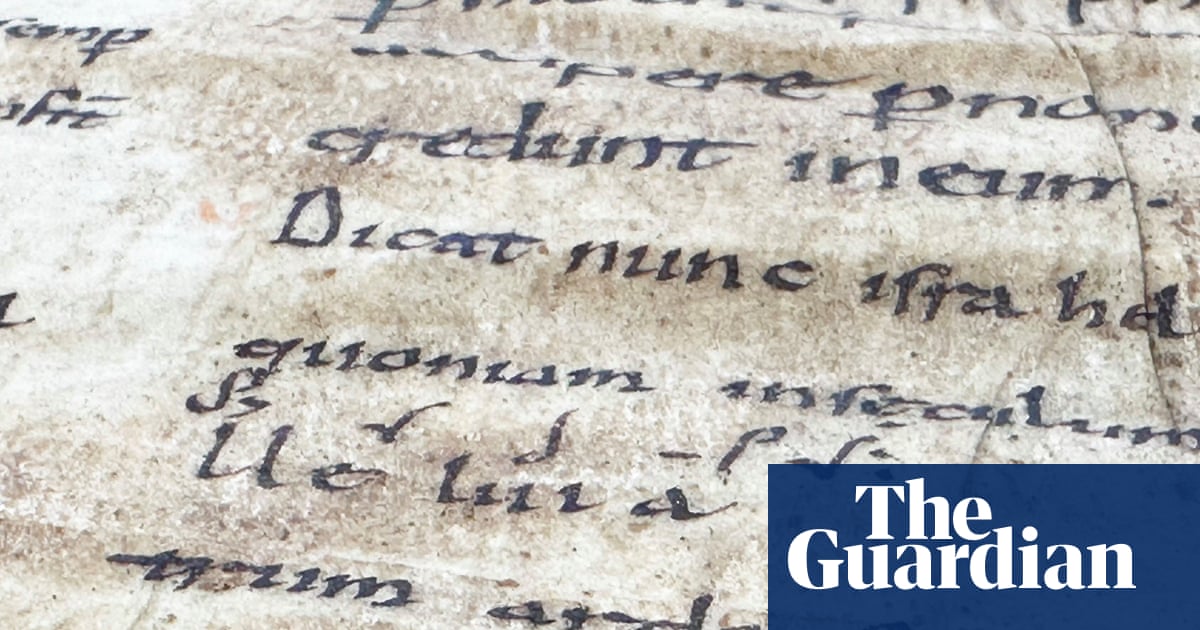
"Researchers in Pennsylvania have uncovered what they believe are some of the earliest written notes in western musical history on a ninth-century manuscript they say remained hidden in plain sight for years in the hands of a private collector. The notations characters and dots similar to shorthand outlines appear above the word alleluia on the document, a vellum manuscript leaf from a Latin sacramentary, a Catholic liturgical book used in western Europe during mass from the mid- to late 800s."
"They were discovered by historian and author Nathan Raab, president of the Raab Collection, during the evaluation of the document presented to him by the private owner. Raab believes the notations were previously overlooked or misunderstood, and he said he spent months researching their origin and significance. The ninth-century Latin manuscript. Photograph: The Raab Collection This is an incredibly early witness to our modern use of musical notations at its very dawn,"
Researchers in Pennsylvania identified early musical notations on a ninth-century vellum sacramentary leaf, with characters and dots placed above the word alleluia. The sacramentary was used in western Europe during mass in the mid- to late 800s and likely originated in Germany in the second half of the ninth century. The marks indicate rising and falling pitch as visual aids for singers and the text is for Easter services. Nathan Raab discovered the leaf while evaluating a privately held document and spent months researching the markings. The markings join a small set of early notations predating later Gregorian chant manuscripts.
Read at www.theguardian.com
Unable to calculate read time
Collection
[
|
...
]